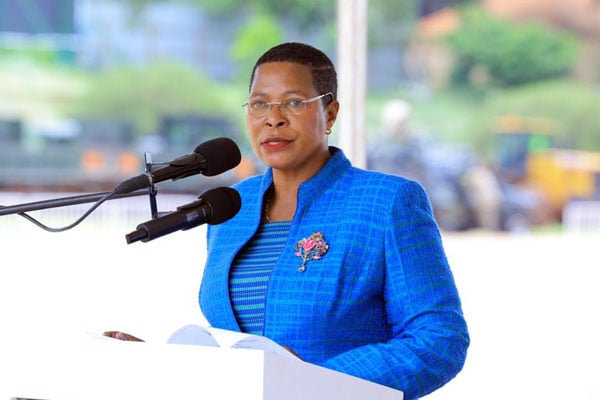Prime
Allow women to succeed in leadership

Irene Atuhairwe
What you need to know:
- Across the world, we know this to be true—when women lead, change happens. Women leaders bring with them unique and creative ideas, build dynamic teams, and strengthen communication across the entities they lead.
The first example of a woman leader that I saw was my mother. She was the head of our household and a caregiver within our community. It is through experiencing her grace, witnessing her grit, and following her guidance that I learnt about intentional leadership and the transformational impact it has on society.
Across the world, we know this to be true—when women lead, change happens. Women leaders bring with them unique and creative ideas, build dynamic teams, and strengthen communication across the entities they lead. They provide inclusive mentorship and due to the many roles, we play in society, are all-encompassing in our response to issues within the workplace.
Although a lot more needs to be done to achieve gender equity in Uganda, we have made great strides in advancing women’s leadership.
Currently, women make up 43 percent of the Cabinet, a significant increase from the previous 27 percent. They occupy 33 percent of parliamentary seats and at the local government level, they hold 46 percent of the positions.
The Ministry of Health, for example, is led by three women (100 percent of the ministerial positions). This is significant given that women make up a majority of the health workforce and face unique challenges that need to be urgently addressed so that they can continue to provide high-quality care.
Of the three ministerial positions in the Ministry of Education, two are held by women. Under their leadership and that of their predecessors, there has been an increase in the number of girls going to school and women attaining university degrees in fields that were previously male-dominated.
Despite these gains, our largely patriarchal society creates major barriers for women within and outside the workplace.
During Cabinet appointments in June 2021, a huge debate ensued among the public on whether the Prime Minister Robinah Nabbanja, the first woman to hold the position in the country, was indeed fit for that office despite holding a ministerial position prior to this appointment.
Her male predecessors were not subjected to similar criticisms. Sadly, having our qualifications and expertise questioned and scrutinised is something that women have become accustomed to.
ALSO READ: Lets model women for better media leadership
Growing up, working in Uganda, and advancing through different leadership roles to date, I have experienced the impact of patriarchy firsthand and witnessed its effects on women in the workplace. For example, women in leadership are often described in terms of motherhood and complimented for being ‘motherly.’
Women who may not exhibit these attributes are often referred to as aggressive or rude. This type of stereotyping diminishes the true contribution and value women bring in the spaces they occupy. In contrast, it is very rare to hear a man’s leadership being described as ‘fatherly.’
I was recently listening to Ms Winnie Byanyima, the executive director of UNAIDS, as she shared her experience on 360 Mentor Africa, a programme that uses Twitter Spaces to mentor young people. Even with her expertise and her status as a global changemaker, she still experiences condescending treatment from men who don’t think she is deserving of her position. However, this has not deterred her from her pursuit of transformational leadership. It was inspiring to hear how she continues to challenge these biases to influence change in her spheres.
DON'T MISS: The pandemic threat to female leadership
As we continue to celebrate women this month, we need to break the bias. Together, we can create a movement to actively dismantle gender bias, discrimination, and stereotyping. Let us set women up for success as leaders in every sphere of life. We need to ensure that women are supported with resources and an enabling environment so that they can realise their potential and transform their communities. We can foster lasting change in health, national prosperity, and global security by unlocking the potential and power of women leaders.
Ms Irene Atuhairwe, country director, Seed Global Health




